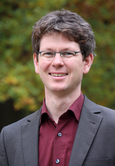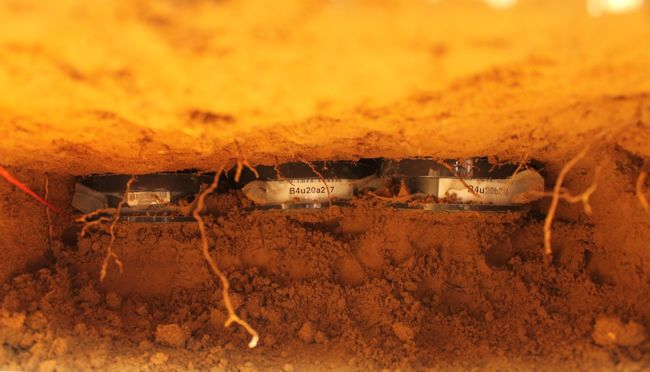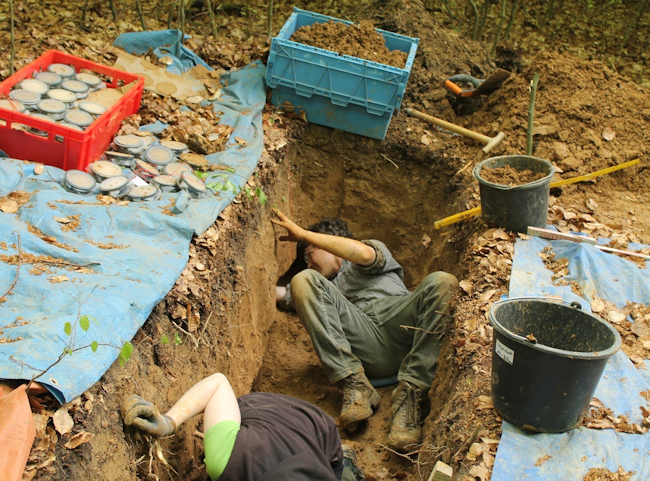Project
Eternal C

Eternal-C – Long term turnover and stabilisation of organic matter in topsoils and subsoils
The turnover of organic matter is decreased in subsoils compared to topsoils. The underlying processes and controlling factors are unclear and require long-term experiments such as the one conducted in the Eternal-C project.
Background and Objective
Subsoils have a large potential to store soil organic carbon on long-term since the carbon turnover in subsoils is slow. The aim of the Eternal-C project is to quantify turnover rates of litter derived organic matter in topsoil and subsoil at three different sites to assess the underlying processes for the higher C stabilisation in subsoils.
Approach
Three sites were selected with the same vegetation (deciduous forest) and climate (central Europe) but different soils (texture) and in total 900 mesocosms were inserted into the topsoil and subsoils in spring 2018. These mesocosms were filled with different amounts of decomposed beech leave litter that was isotopically labeled. Within a time period of 20 years (till 2038) the mesocosms are going to be sampled and the fate of the litter will be analysed. The project is coordinated by the Thünen Institute of Climate-Smart Agriculture and conducted in cooperation with the Technical University Dresden, the Leibnitz University Hannover, The University Hohenheim, the Helmholtz Institute for Environmental Research Halle and the Northwest German Forest Research Institute.
Thünen-Contact

Involved Thünen-Partners
Involved external Thünen-Partners
-
Leibniz Universität Hannover
(Hannover, Deutschland) -
Technische Universität Dresden
(Dresden, Tharandt, Deutschland) - Helmholtz-Zentrum für Umweltforschung (UFZ)
(Leipzig, Deutschland) -
Universität Hohenheim
(Hohenheim, Deutschland) - Nordwestdeutsche Forstliche Versuchsanstalt (NW-FVA)
(Göttingen, Hann. Münden, Deutschland)
Duration
3.2018 - 2.2038
More Information
Project status:
ongoing

Publications
- 0
Begill N, Poeplau C, Meesenburg H, Rebmann C, Don A (2025) Different amounts of added litter do not affect long-term carbon mineralization and stabilization in topsoils and subsoils. J Plant Nutr Soil Sci 188(6):925-938, DOI:10.1002/jpln.70002

![[Translate to English:] [Translate to English:]](/media/_processed_/6/4/csm_titel_CO2Kampagne8_afeea2273e.png)
![[Translate to English:] [Translate to English:]](/media/_processed_/4/1/csm_titel_93px_CO2Kampagne8_9b0f3354d4.png)






